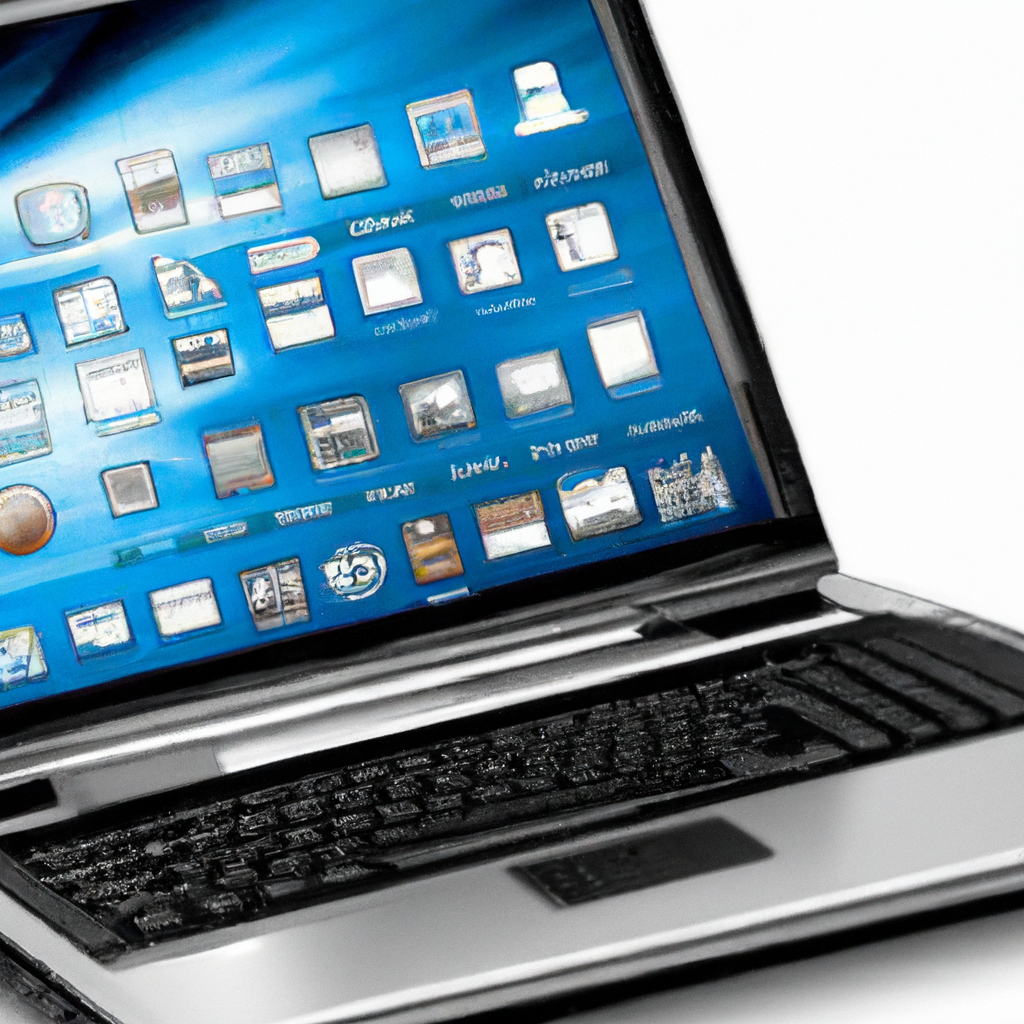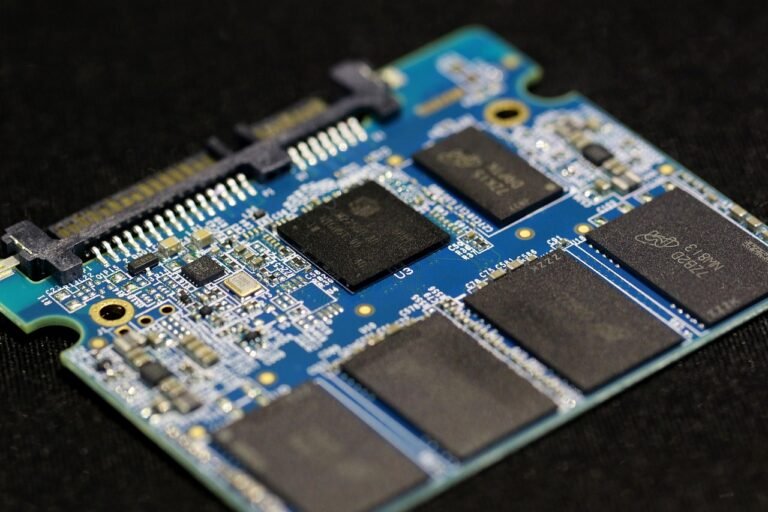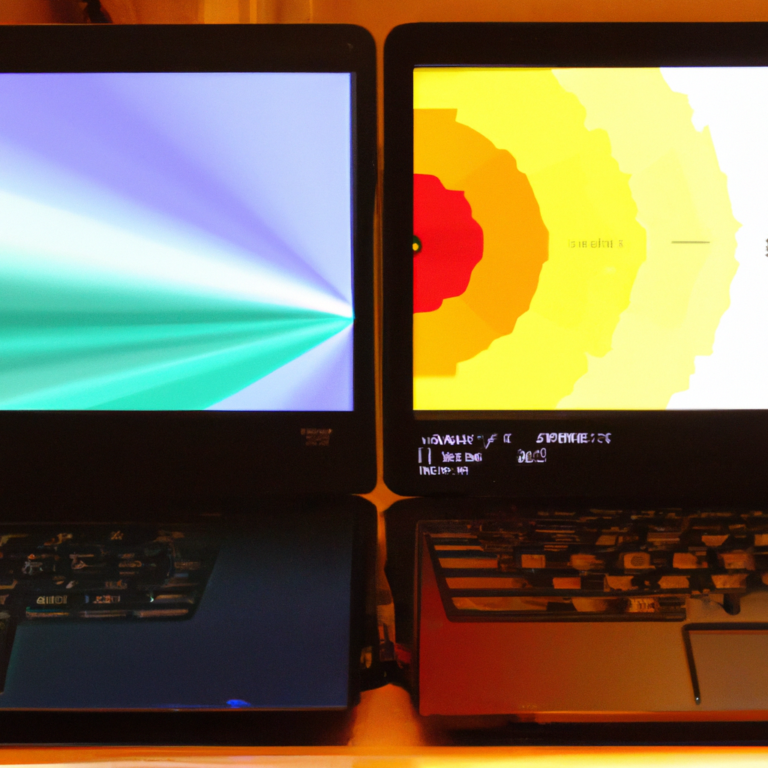How Do I Choose The Right Brand And Model For Gaming Laptops?
So, you’ve decided to level up your gaming experience with a new laptop, but you’re feeling overwhelmed by the sea of options available. Don’t worry, we’ve got you covered! In this article, we’ll help you navigate the world of gaming laptops and guide you on how to choose the right brand and model that suits your needs and preferences. From factors like processing power and graphics capabilities to considerations of design and brand reputation, we’ll walk you through the key points to keep in mind during your search. So, sit back, relax, and let’s find your perfect gaming companion! When it comes to choosing the right gaming laptop, there are several factors to consider. The performance of the laptop plays a crucial role in determining your gaming experience. Let’s dive into the different aspects of a gaming laptop that you should look out for to make an informed decision.

This image is property of pixabay.com.
Performance
Processor
The processor of a gaming laptop is one of the most important components that determines its performance. You should aim for a laptop with a powerful processor that can handle the demands of modern games. Processors from brands like Intel and AMD are popular choices among gamers. Look for models with high clock speeds and multiple cores for smooth multitasking and optimal gaming performance.
Graphics Card
The graphics card, also known as the GPU (Graphics Processing Unit), is another crucial component for gaming. A dedicated graphics card offers better performance compared to integrated graphics. Look for laptops that feature high-end GPUs from reputable brands like Nvidia or AMD. These GPUs will ensure smooth gameplay and better visuals in your favorite games.
RAM
Random Access Memory (RAM) is essential for smooth multitasking and gaming performance. The more RAM your gaming laptop has, the smoother your gaming experience will be. Aim for a laptop with at least 8GB of RAM, but if you can afford it, consider opting for 16GB or even higher. This will allow you to run multiple applications and games simultaneously without any lag.
Storage
The storage options of a gaming laptop can significantly impact your gaming experience. There are a few different types of storage options available, each with its own pros and cons. Hard Disk Drives (HDD) offer large storage capacities but are slower compared to Solid State Drives (SSD). SSDs provide faster loading times and better overall performance. Hybrid drives combine the benefits of both HDD and SSD. NVMe PCIe SSDs offer even faster speeds for lightning-fast game loading. Consider your storage needs and budget when choosing between these options.
Screen Size and Resolution
Screen Size
The screen size of a gaming laptop is a personal preference. Larger screens, typically around 15 to 17 inches, provide a more immersive gaming experience with a wider field of view. However, they also make the laptop bulkier and less portable. Smaller screens, around 13 to 14 inches, offer better portability but may sacrifice some visual enjoyment. Consider your gaming preferences and how you plan to use the laptop to determine the ideal screen size for you.
Resolution
Resolution refers to the number of pixels on the screen and greatly affects the clarity of the visuals. Higher resolutions like 1920×1080 (Full HD) or even 3840×2160 (4K) offer crisp and detailed graphics. However, keep in mind that higher resolutions require more graphical power and may impact the overall performance of the laptop. Choose a resolution that strikes a balance between visual quality and performance based on your gaming preferences.
Refresh Rate
The refresh rate of a gaming laptop’s display determines how many times the screen updates per second. A higher refresh rate, such as 144Hz or 240Hz, can offer smoother visuals with reduced motion blur, especially in fast-paced games. However, keep in mind that higher refresh rates may require more powerful hardware to drive the display. Determine your priority between visual smoothness and performance based on the types of games you enjoy playing.
Portability
Weight and Size
Portability is an important consideration if you plan on using your gaming laptop on the go or traveling frequently. Lightweight and slim laptops are easier to carry and fit into backpacks or bags. However, keep in mind that high-performance components may add weight and bulk to the laptop. Consider your usage patterns and prioritize portability accordingly.
Battery Life
Battery life is crucial for gaming laptops, especially when you are away from a power source. Gaming laptops tend to consume more power due to their high-performance hardware. Look for laptops with longer battery life if you need to use it for extended periods without charging. However, keep in mind that gaming laptops usually have shorter battery life compared to regular laptops due to their powerful components.
Keyboard and Touchpad
Ergonomics
A comfortable keyboard and touchpad are essential for an enjoyable gaming experience. Look for laptops with well-spaced keys and good key travel to ensure accurate and comfortable typing. Additionally, some gaming laptops come with features like anti-ghosting and N-key rollover, which allow for multiple key presses simultaneously. This can be beneficial in fast-paced games that require quick and precise inputs.
Backlighting
Backlighting is a popular feature in gaming laptops that adds both style and functionality. Look for laptops with customizable backlighting options, allowing you to personalize the keyboard lighting to your preference. Additionally, keyboards with individual key lighting or per-key RGB lighting can enhance your gaming experience and make it easier to locate specific keys in dimly lit environments.

This image is property of pixabay.com.
Connectivity Options
USB Ports
USB ports are essential for connecting peripherals such as gaming mice, keyboards, and external storage devices. Look for laptops with multiple USB ports, including USB 3.0 or USB 3.1 ports for faster data transfer speeds. USB-C ports are also becoming increasingly important for connecting high-speed devices and external displays.
HDMI Port
An HDMI port allows you to connect your gaming laptop to an external display or TV for a larger and more immersive gaming experience. Look for laptops with HDMI 2.0 or higher to support higher resolutions and refresh rates.
Ethernet Port
While Wi-Fi is convenient, an Ethernet port can provide a more stable and faster internet connection for online gaming. If you plan on gaming competitively or in areas with unreliable Wi-Fi, consider a laptop with an Ethernet port.
Wi-Fi
Look for gaming laptops that support the latest Wi-Fi standards, such as Wi-Fi 5 (802.11ac) or Wi-Fi 6 (802.11ax). These standards offer faster and more reliable wireless connections, which can be crucial for online gaming.
Storage Options
Hard Disk Drive (HDD)
HDDs provide a large amount of storage space at a more affordable price. They are perfect for storing games, movies, and other media files. However, they are slower compared to SSDs and may result in longer loading times for games and applications.
Solid State Drive (SSD)
SSDs offer faster read and write speeds, resulting in faster boot times and game loading times. They also contribute to overall system responsiveness. However, SSDs tend to have smaller storage capacities and can be pricier compared to HDDs.
Hybrid Drives
Hybrid drives combine the benefits of both HDDs and SSDs. They have a smaller SSD cache for faster access to frequently used files, while also offering larger storage capacities with the HDD portion.
NVMe PCIe SSD
NVMe (Non-Volatile Memory Express) PCIe SSDs are the fastest storage option available. They provide lightning-fast read and write speeds, significantly reducing game loading times and improving overall system performance. However, they tend to be more expensive compared to traditional SSDs.

This image is property of pixabay.com.
Audio Quality
Built-in Speakers
While gaming laptops are not known for their exceptional built-in speakers, some models offer better audio quality than others. Look for laptops with high-quality speakers and technologies like Dolby Atmos for an immersive audio experience.
Audio Jacks
If you prefer using headphones or external speakers, pay attention to the audio jacks available on the gaming laptop. Look for laptops with separate headphone and microphone jacks or a combined audio jack that supports both.
Cooling System
Thermal Design
A well-designed thermal system is crucial for keeping your gaming laptop cool during intense gaming sessions. Look for laptops with efficient heat dissipation mechanisms, such as heat pipes and multiple heat sinks. These cooling solutions help maintain optimal performance and prevent overheating.
Heat Dissipation
Good heat dissipation is essential for the longevity of your gaming laptop. Look for laptops with effective ventilation systems and sufficient airflow to prevent excessive heat buildup. Additionally, consider laptops with fans that can ramp up their speed when under heavy load to quickly dissipate heat.
Fan Noise
While cooling is important, the noise generated by the cooling fans can be distracting during gaming sessions. Look for laptops with efficient cooling systems that also keep fan noise at a minimum. Some laptops come with customizable fan profiles, allowing you to strike a balance between cooling performance and fan noise based on your preferences.

Design and Build Quality
Material
The material used for the construction of a gaming laptop impacts its durability and overall build quality. Look for laptops made from sturdy materials like aluminum or magnesium alloy, which offer better resistance to daily wear and tear. Additionally, pay attention to the quality of the hinge mechanism and overall build precision.
Durability
Gaming laptops undergo demanding usage, so durability is vital. Look for laptops that have undergone rigorous testing for reliability and durability. Military-grade certifications, such as MIL-STD 810G, indicate that the laptop has passed strict durability standards.
Aesthetics
The design of a gaming laptop is a matter of personal preference. Some prefer sleek and minimalist designs, while others prefer bold and gaming-centric aesthetics. Look for laptops that match your style preferences and have design elements that enhance the overall gaming experience.
Budget
Price Range
Gaming laptops come in a wide range of prices, so it’s important to determine your budget beforehand. Higher-priced laptops usually offer better performance, build quality, and additional features. However, there are also budget-friendly options available that offer decent gaming performance without breaking the bank. Set a realistic budget based on your requirements and research laptops within that price range.
Value for Money
Consider the overall value for money when choosing a gaming laptop. Look for laptops that offer a good balance between price and performance, ensuring that you are getting the most out of your investment. Read reviews, compare specifications, and weigh the features and performance against the price to find the best value for your budget.
Choosing the right gaming laptop brand and model can be a daunting task, but understanding the different factors mentioned above can help simplify the process. Consider your gaming needs, preferences, and budget to find a gaming laptop that offers the best performance, portability, and overall gaming experience for you. Happy gaming!







